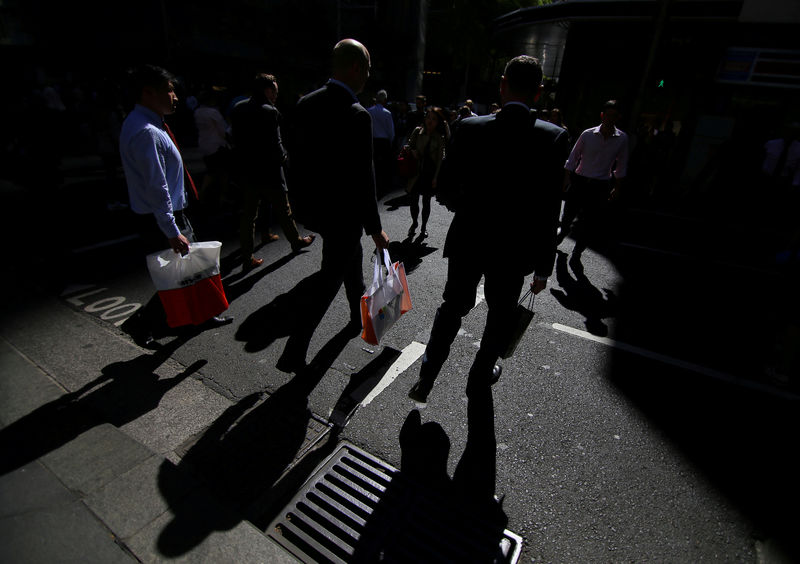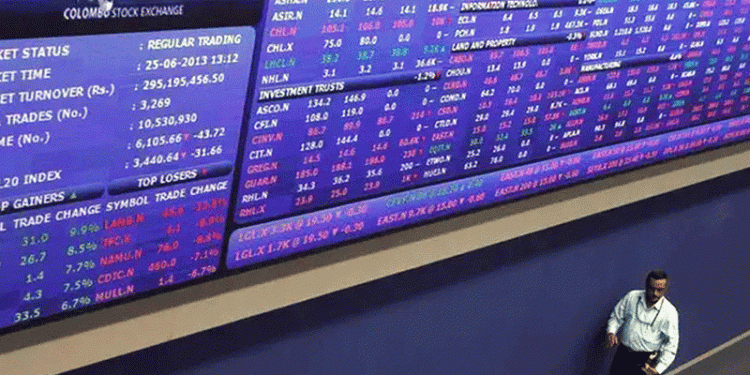 © Reuters. FILE PHOTO: Workers walk on the streets of Sydney, Australia
© Reuters. FILE PHOTO: Workers walk on the streets of Sydney, AustraliaBy Jonathan Barrett and Paulina Duran
SYDNEY (Reuters) – Australian pension funds are “surrounded by temptation” to put profits ahead of people, a barrister assisting an inquiry into financial misconduct said on Monday at the start of hearings into the A$2.6 trillion ($1.9 trillion) sector.
The powerful Royal Commission inquiry has already roiled the banking and funds-management industry and now it is the turn of Australia’s pension fund sector to answer questions about alleged misconduct and poor performance.
“What happens when we leave these trustees alone in the dark with our money?” asked Michael Hodge, the barrister assisting the inquiry at the start of a scheduled two-week examination of the retirement savings sector.
“Can they be trusted to do the right thing?”
Account-holders and industry groups said in their submissions that fees were not properly disclosed or were charged for services that were not rendered, such as financial advice, the inquiry heard.
Concerns over fees and performance have generated a groundswell of consumer disquiet in Britain and the United States about the vague language retirement funds use to justify lackluster performance.
Pension funds in Australia operate as trusts, which means they must adhere to various laws such as ensuring investments are made prudently and members cared for.
“Australians are not, as a general rule, reviewing the performance of their superannuation funds, comparing that performance to other funds and making rational choices as to whether they should remain with their fund or switch,” Hodge said.
The latest round of hearings may pile more pressure on the shares of the country’s four biggest banks and top financial planner AMP Ltd (AX:) – all of which the Royal Commission has called to appear.
Revelations of misconduct stemming from earlier hearings have already wiped about A$26 billion off the market capitalization of Australia’s top financial firms, as investors factor in higher compliance costs and greater regulation.
REGULATOR SCRUTINY
Australia has the third-largest pension pool in the world, according to OECD data, due to laws requiring employers to pay nearly a tenth of every worker’s wage into a fund the person cannot usually access until retirement.
The majority of Australia’s 12 million workers often leave their employer to choose between a union-backed industry fund or a corporate product run by a major bank or fund manager.
Some workers also rely on financial advisers to manage their pension investment, although the inquiry has repeatedly revealed that advice can be compromised by conflicts in the advice industry, such as poorly-structured bonus payments.
Hodge said that while most funds were overseen by the prudential regulator, there was no dedicated authority looking at their trustee responsibilities and “searching for bad behavior”.
Fusion Media or anyone involved with Fusion Media will not accept any liability for loss or damage as a result of reliance on the information including data, quotes, charts and buy/sell signals contained within this website. Please be fully informed regarding the risks and costs associated with trading the financial markets, it is one of the riskiest investment forms possible.
Source: Investing.com




























